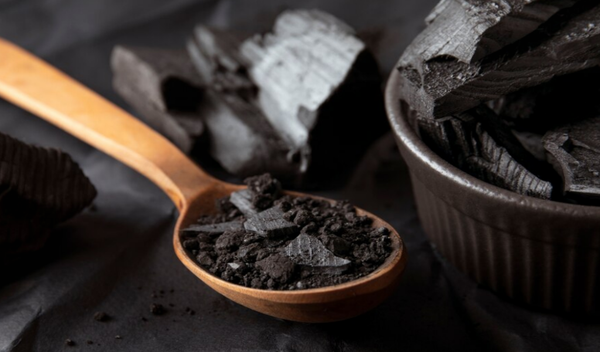Poor fertility is quite a problem among both men and women that prevents them from starting a family. While some people can afford expensive medical procedures to enhance or boost their fertility, most people rely on fertility supplements.
But do these fertility supplements actually work? Or are these supplements enough to enhance fertility in both genders? If you need answers to these questions, you’ve come to the right place. In this blog, we’ll discuss whether or not supplements help enhance fertility. In the end, we shall also talk about a one-of-a-kind natural fertility supplement by Wellbeing Nutrition (WBN). So read along.
Can Supplements Alone Improve Fertility in Men and Women?
You should know that your diet and the nutrients it comes with play an important role in improving fertility. If a person consumes a diet poor in micronutrients, he or she can be at a risk of infertility.
Fortunately, research says that micronutrient supplementation can help enhance the reproductive environment by restoring the lost micronutrients. Another study found that supplementations such as Vitamin E, C, selenium, l-carnitine, might help enhance sperm motility, morphology, and even concentration.
So, according to the above studies, supplements help improve fertility in both men and women. However, they need to be complemented with a few mandatory lifestyle changes, that include losing excess weight, drinking alcohol within a limit or stopping it altogether, quitting smoking, keeping stress at bay, and exercising regularly without fail. So what are the nutrients that aid in improving fertility? Let’s find out.
What Nutrients Help Improve Fertility?
Given below are a few essential nutrients that help enhance fertility. Let’s take a look at them in detail.
1. Omega 3
Omega 3 fatty acids help improve blood pressure and also reduce the risk of heart issues. One more thing as per research is that omega-3 fatty acids help with improving sperm concentration & motility, and morphology. That is why this particular nutrient is absolutely essential when it comes to enhancing one’s fertility.
2. Vitamin E
Vitamin E is known to benefit your vision and hair. And according to some studies, Vitamin E also helps reduce the risk of reproductive disorders in females. What’s more is that vitamin E helps protect the sperm membrane from oxidative damage.
3. Folic Acid
According to experts, folic acid, along with zinc, can help enhance sperm quality, thus boosting the overall fertility in men. Coming to females, folic acid helps women become and stay pregnant. However, researchers say that more evidence/studies are required to certify this remark.
4. Magnesium
Magnesium helps reduce pregnancy-related complications in females, thus improving the chances of a safe delivery. It also helps men with low sperm count boost motility which means better chances of impregnation.
5. Ashwagandha
Ashwagandha is specifically known to improve fertility in men. For instance, a study conducted for over 3 months in 75 men suffering from infertility showed that consumption of 5 grams of ashwagandha helps improve motility and sperm count.
6. Spirulina
According to a study, 11% higher semen was collected from the men who consumed spirulina over the men who didn’t. Spirulina is also known to enhance the fertility of bull sperm.
So Which Brand of Supplement Can One Take To Enhance Fertility?
Yes, supplements have the potential to enhance fertility when combined with several other lifestyle changes. However, the supplement in question needs to contain all the required nutrients. Where can you find such a supplement? Well, you don’t have to as we already have done that for you. And it goes by the name Slow Fertility.
Slow Fertility from Wellbeing Nutrition is a time-conscious supplement using Vegan Omega oil that helps improve fertility both in men and women. It comes with all the necessary ingredients for enhancing fertility.
For instance, Slow Fertility has :
- B complex for better sperm motility and sperm count in men and for conception in women.
- Folic acid, magnesium, and vitamin B12 are present for better embryo development.
- Ashwagandha is used for better sperm motility and sperm count in men and timely menstruation among women.
- DHA is present for the development of fetal eyes and brain.
- Vitamin E and spirulina are included to reduce oxidative stress and sperm damage.
With all these ingredients locked in an easy-to-consume capsule, Slow Fertility is one of the best natural supplements for fertility in the market. It’s for both men and women who’re planning to start their families or are suffering from hormonal imbalances.
The best part is that Slow Fertility, is clinically tested, free from side effects, and is known to offer the promised benefits. So, this is a supplement you can rely on. However, make sure to consume a healthy diet along with this supplement regularly to ensure the best results.
Wrapping Up
Most people lose hope when it comes to infertility. However, most fertility issues stem due to the lack of certain essential micronutrients, which Slow Fertility can very well help you with. So, if you have fertility issues, give Slow Fertility a try and notice the difference.
A piece of advice would be to consult your gynecologist before administering any supplement or medication. This is to be on the safe side and to prevent any unforeseen results.
References
Schaefer, E., & Nock, D. (2019). The Impact of Preconceptional Multiple-Micronutrient Supplementation on Female Fertility. Clinical medicine insights. Women's health, 12, 1179562X19843868. https://doi.org/10.1177/1179562X19843868
Ahmadi, S., Bashiri, R., Ghadiri-Anari, A., & Nadjarzadeh, A. (2016). Antioxidant supplements and semen parameters: An evidence based review. International journal of reproductive biomedicine, 14(12), 729–736. https://www.ncbi.nlm.nih.gov/pmc/articles/PMC5203687/
Panth, N., Gavarkovs, A., Tamez, M., & Mattei, J. (2018). The Influence of Diet on Fertility and the Implications for Public Health Nutrition in the United States. Frontiers in public health, 6, 211. https://doi.org/10.3389/fpubh.2018.00211
Hosseini, B., Nourmohamadi, M., Hajipour, S., Taghizadeh, M., Asemi, Z., Keshavarz, S. A., & Jafarnejad, S. (2019). The Effect of Omega-3 Fatty Acids, EPA, and/or DHA on Male Infertility: A Systematic Review and Meta-analysis. Journal of dietary supplements, 16(2), 245–256. https://doi.org/10.1080/19390211.2018.1431753
Safarinejad, M. R., & Safarinejad, S. (2012). The roles of omega-3 and omega-6 fatty acids in idiopathic male infertility. Asian journal of andrology, 14(4), 514–515. https://doi.org/10.1038/aja.2012.46
Mohd Mutalip, S. S., Ab-Rahim, S., & Rajikin, M. H. (2018). Vitamin E as an Antioxidant in Female Reproductive Health. Antioxidants (Basel, Switzerland), 7(2), 22. https://doi.org/10.3390/antiox7020022
Chiu, Y. H., Chavarro, J. E., & Souter, I. (2018). Diet and female fertility: doctor, what should I eat?. Fertility and sterility, 110(4), 560–569. https://doi.org/10.1016/j.fertnstert.2018.05.027

























